 Ability + Physicality
Ability + Physicality
Witty alerts you to expressions that marginalize people based on a definition of - physical, mental, or intellectual - normal. With Witty's suggestions you contribute to building a space where everyone feels they belong, no matter their size, shape, skin, or hair; illnesses others can't see; or the barriers to their participation they navigate.
Most of us are taught to believe that having a disability, an illness, or physical attributes different from aesthetic fashions, suggests otherness. In fact, 15% of the world’s population experiences some form of disability (World Bank), and almost three in five US Americans feel beauty brands have a responsibility to destigmatize flaws. Flagging language that misrepresents natural human diversity, Witty offers inclusive and respectful alternatives. It detects ableist slurs, disability-related hate speech, and biases in eleven dimensions, from vision, hearing, and speech to learning, mental well-being, and physicality.
Unconscious bias
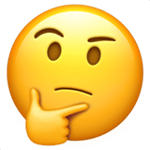 Dis/Ability
Dis/Ability

To respect everyone, avoid basing how you talk to, and about, people on your ideas of "normal."
Referring to people as “idiots” because they’re “turning a blind eye” is rarely about their actual intellectual capacity or lack of 20/20 vision. It’s about behavior that’s damaging, inconsiderate, or mean - or about a point of view not shared. Disparaging words, metaphors, jokes, and euphemisms are rife with ableist language. We use them every day, usually without ill intent. But in doing so, we fuel the negativity and bias surrounding disabilities and chronic illnesses. Witty helps you avoid words and turns of phrase that other, hurt, or make uncomfortable those around you who navigate barriers that impede their participation.
Basic Example

Advanced Example
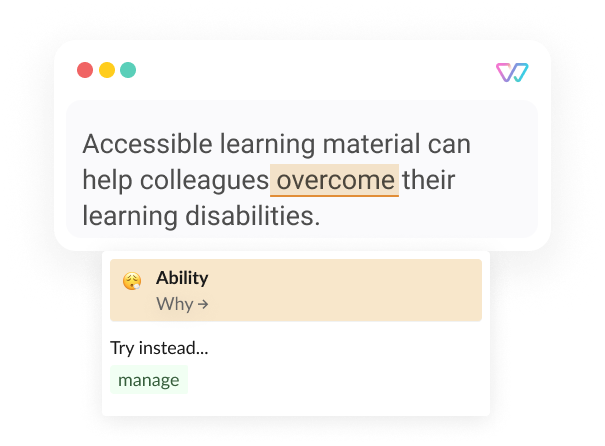
Basic Example

Advanced Example
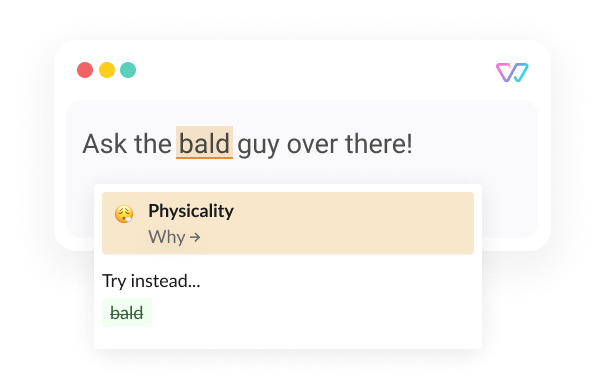
 Physicality
Physicality

To help make everyone around you feel at ease about their body and appearance, avoid drawing attention to, or identifying people by, physical attributes.
Visible
 Behavior
Behavior

Sometimes a behavior of a person is considered as "other" according to a stereotypical view by the society, meaning the society's behavior is "normal" and this person's not. But this thinking is outdated. «The research of "Neurodiversity" describes the idea that people experience and interact with the world around them in many different ways; there is no one "right" way of thinking, learning, and behaving, and differences are not viewed as deficits», as described in this article of Harvard Health.
Basic Example

Advanced Example
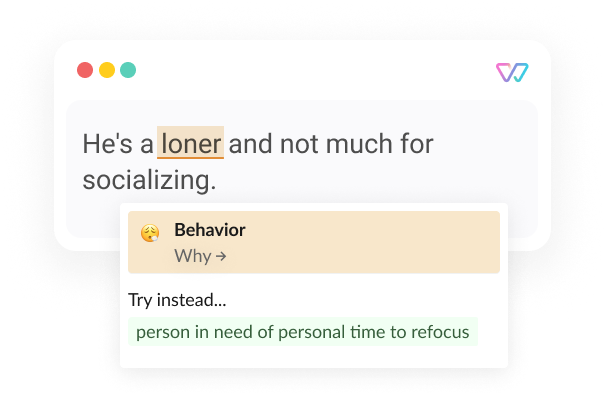
Basic Example
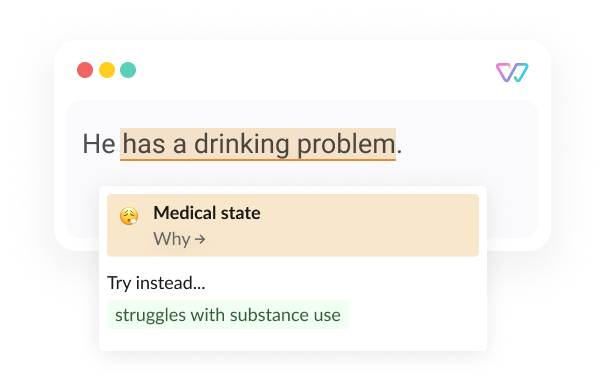
Advanced Example
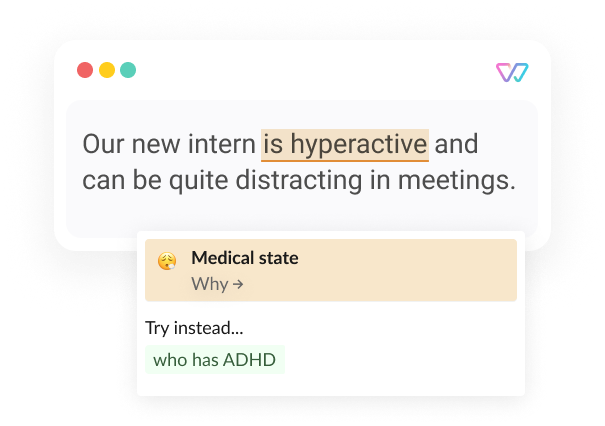
 Medical state
Medical state

Help prevent the stigmatization of people with diseases: Avoid referring to them by their health status, and don't infer how and why they contracted, or are not recovering from, a disease.
 Mobility
Mobility

Include people navigating mobility barriers by avoiding language that equates value with movement or makes assumptions about a person with disabilities.
Admiring, marveling or pitying, when people talk about those living with mobility disabilities, they often use terms that spotlight what people can't do. Others use the disability as a prompt to fabulate about the life or character of the person living with said disability. We also fall back on terms related to physical disabilities to describe things, systems, or technology as worthless, or unable to function. To include everyone, irrespective of their mobility status, stay mindful of ableist tropes, and avoid terms that equate the capacity to move with value and function.
Basic Example

Advanced Example
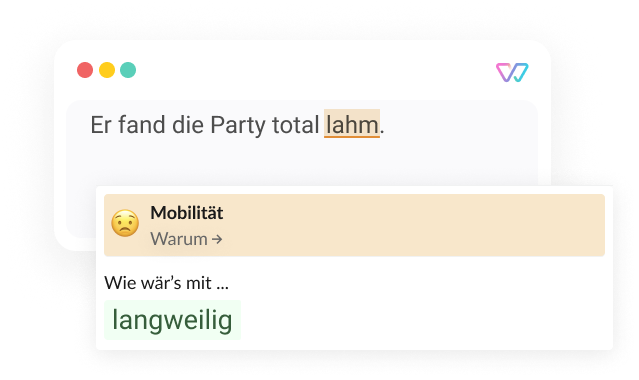
Invisible
Basic Example
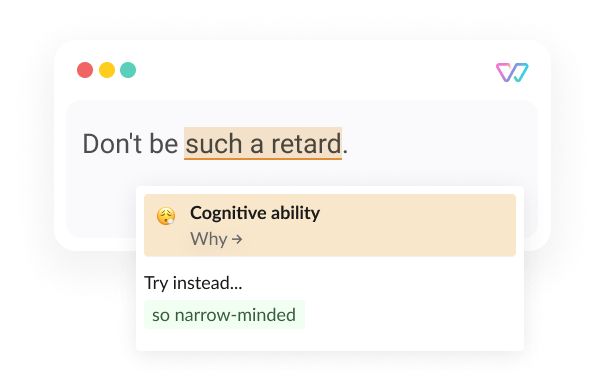
Advanced Example
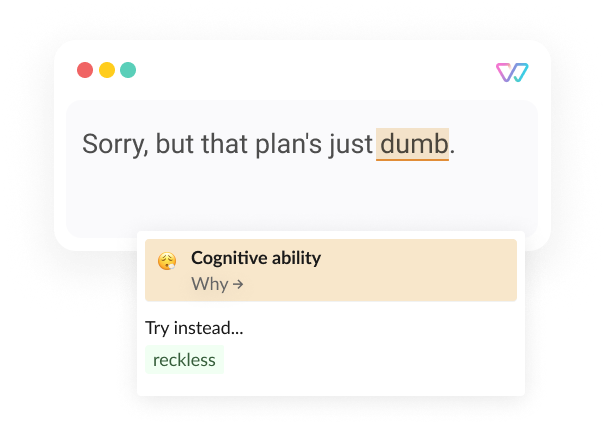
 Cognitive ability
Cognitive ability

Steer clear of pandering to misconceptions and biases about the capacity to think and reason.
Our society has countless negative terms for describing cognitive function. And we use them every day in jest and in anger, to express displeasure or frustration, in conversations with and about others. But this language makes figurative use of harmful real-life biases that misrepresent, pigeonhole, and marginalize people with a disability or chronic disease that influences their cognitive ability. You may not be aware who on your team goes about their life and job with managing barriers to their cognitive ability. How cognitive ability manifests is different, from person to person, and invisible to most.
 Hearing
Hearing

To welcome and include everyone, stay mindful of myths and stereotypes about D/deaf people
Basic Example

Advanced Example

Basic Example
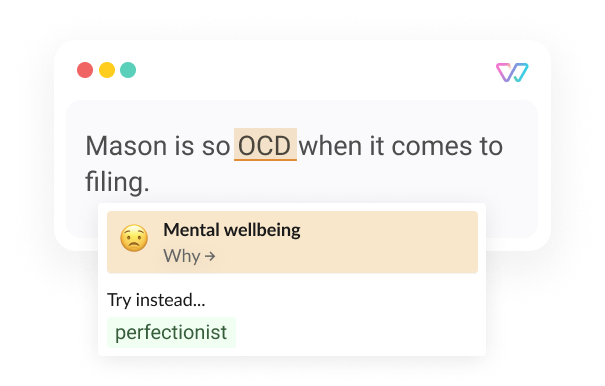
Advanced Example
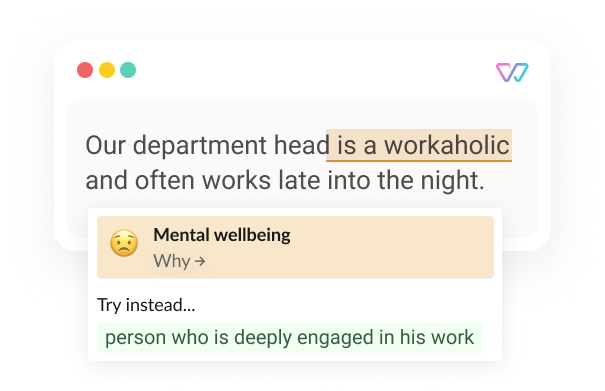
 Mental wellbeing
Mental wellbeing

Mental health and well-being
Using words related to mental health casually and with negative connotations can be hurtful and distressing to people who are invested in managing their mental wellbeing and people living with an invisible disability. Treating mental health as a joke, metaphor, or euphemism and making assumptions about what it’s like to experience mental health problems enables others to internalize mental health stigma.
 Misuses mental health
Misuses mental health

We all experience the world through our senses - seeing, listening, smelling, tasting, and feeling. This is called cognitive perception. Another aspect of cognitive perception is how we deal with the information we receive from senses. Our individual cognitive perception influences how we respond to people, assess risks, and behave in different settings. We use our personal experiences and our ideas of what is "normal" to assess the responses and behaviors of others. But we all experience the world differently. Making judgements about people who do not perceive the world the same way we do, can have serious social ramifications for the person we judge. Labelling someone as "not normal" and questioning their ability to perceive reality "correctly" can make them vulnerable to marginalization, stigmatization, and bullying.
Basic Example
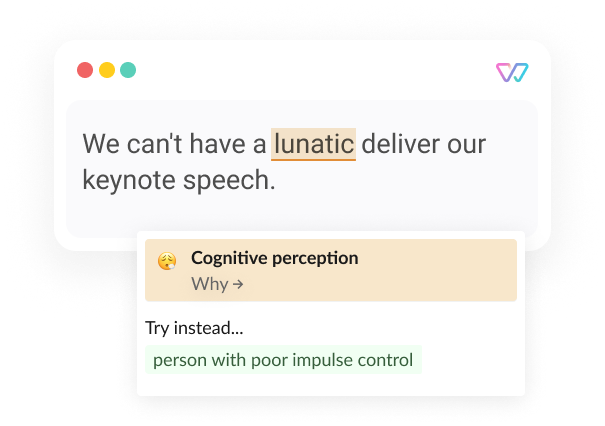
Advanced Example
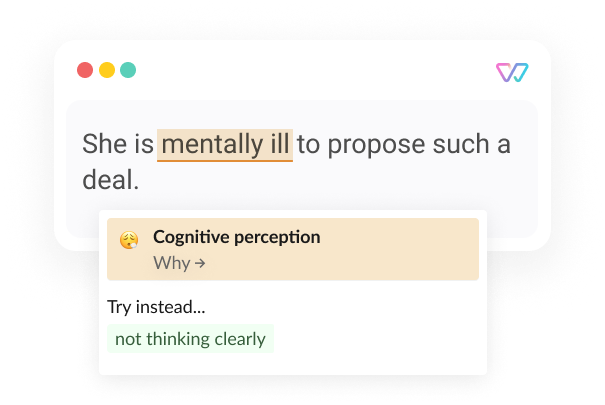
Basic Example
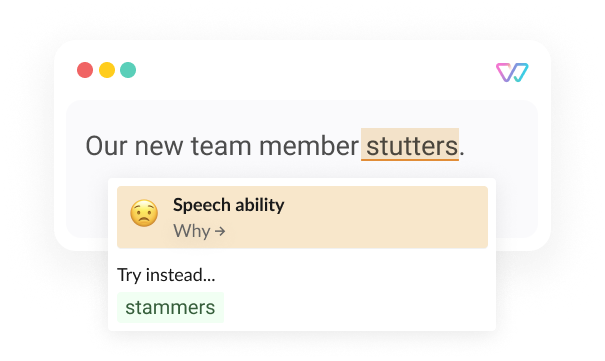
Advanced Example
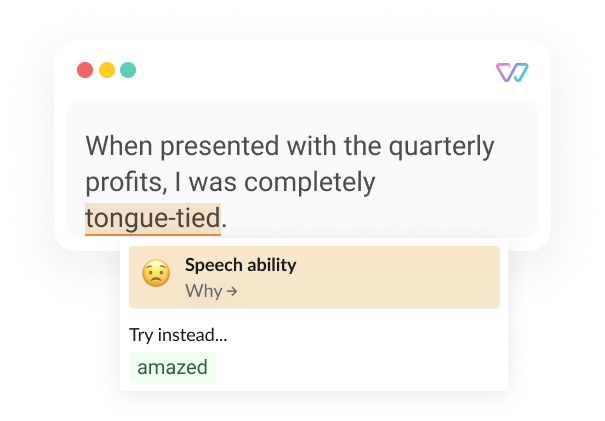
 Speech ability
Speech ability

Speech and language-related disabilities
Terms describing non-speaking people or people living with speech and language-related disabilities are often closely linked to negative stereotypes and misguided assumptions. People with speech and language-related disabilities are assumed to be struggling because they're "insecure" or "nervous" or interpreted as showing mental limitations or a lack of thinking ability. Related terms are often used figuratively to describe something as "different" or "limited in function."
 Vision
Vision

To welcome and include everyone, stay mindful of myths and stereotypes about the ability to see.
Basic Example

Advanced Example
.png)
